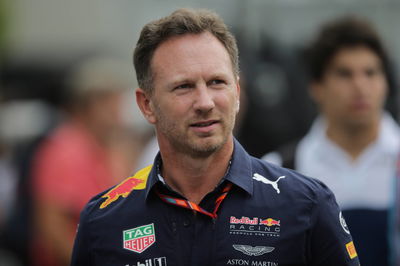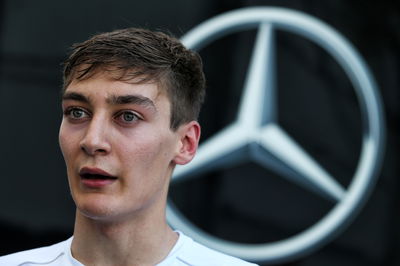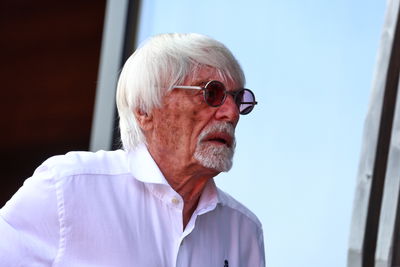Horner 'very encouraged' by 2021 F1 engine plans
Red Bull team boss Christian Horner is "very encouraged" by Formula 1's early engine plans for the 2021 season as the sport's bosses look to increase the sound of the power units while making them more affordable.
Leading figures from the F1 Group and the FIA unveiled the proposed engine rules for the next regulation cycle - set to come into force in 2021 - at a meeting in Paris last week, with a reduction from two to one hybrid elements and an increase in revs set to improve the sound produced by the power units.

Red Bull team boss Christian Horner is "very encouraged" by Formula 1's early engine plans for the 2021 season as the sport's bosses look to increase the sound of the power units while making them more affordable.
Leading figures from the F1 Group and the FIA unveiled the proposed engine rules for the next regulation cycle - set to come into force in 2021 - at a meeting in Paris last week, with a reduction from two to one hybrid elements and an increase in revs set to improve the sound produced by the power units.
Plans are also in the works to introduce more standardised parts to help reduce the cost of the power units, giving Horner hope for the post-2020 rules after making his distaste over the current V6 turbo hybrid rules known for a number of years.
"I came back from the meeting in Paris and I have to say I was very encouraged with what I saw. For once the FIA and FOM were absolutely aligned in what their vision of an engine is for the future," Horner told Motor Sport Magazine.
"The really encouraging thing for me, it wasn’t so much the specification. I would love to have a V10 or V12, a high screaming naturally aspirated engine. I’m a bit of a dinosaur like that but I accept that we live in a modern world and a V6 turbo engine has been elected. They’ve put a key amount of focus on several factors – one being the sound. It’s got to come back into F1, it’s part of the heritage, the makeup.
"The other is that for an independent team such as Red Bull is really encouraging is that they want to ensure as a customer you get absolute parity, not just on product but on electronics as well, so electrical settings will have to be homologated. So the FIA will have to say ‘like for like they’ll have to be the same as on a works car’.
"The other thing is that there’ll be large elements of standardisation of certain components like turbos and perhaps prescriptive design. There’s going to be less variance between engine manufacturers.
"We have too big a spread at the moment and it puts too much pressure on the chassis side of things and I think the FIA has basically looked at the engine and said: one, it costs too much; two, it’s not delivering from an acoustic point of view; and three, it's too much of a performance differentiator from the best to the worst and I think they’re really narrowing that gap.
"As an entrance, your biggest or bigger influence will be on chassis. Obviously, there’s a few engine or works thing that weren’t as happy with that outlay because that’s dumbing down one of the key elements of F1.
"But I think the drivers are the biggest importance, teams or chassis secondary, and the engine tertiary."











